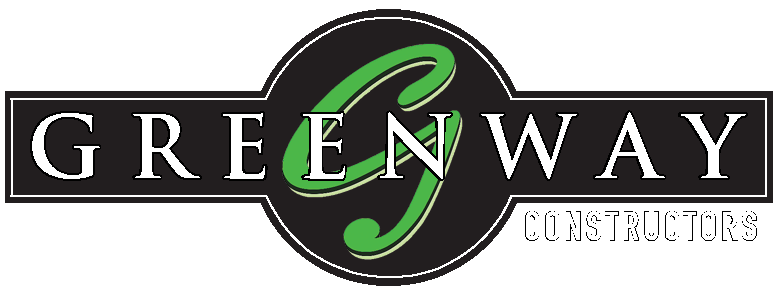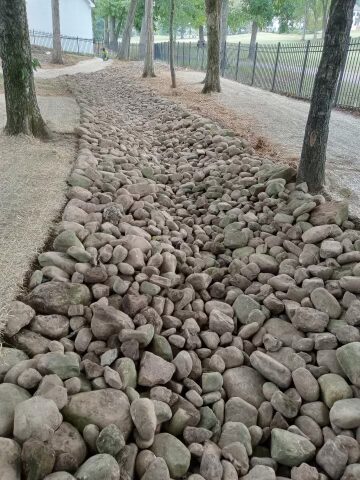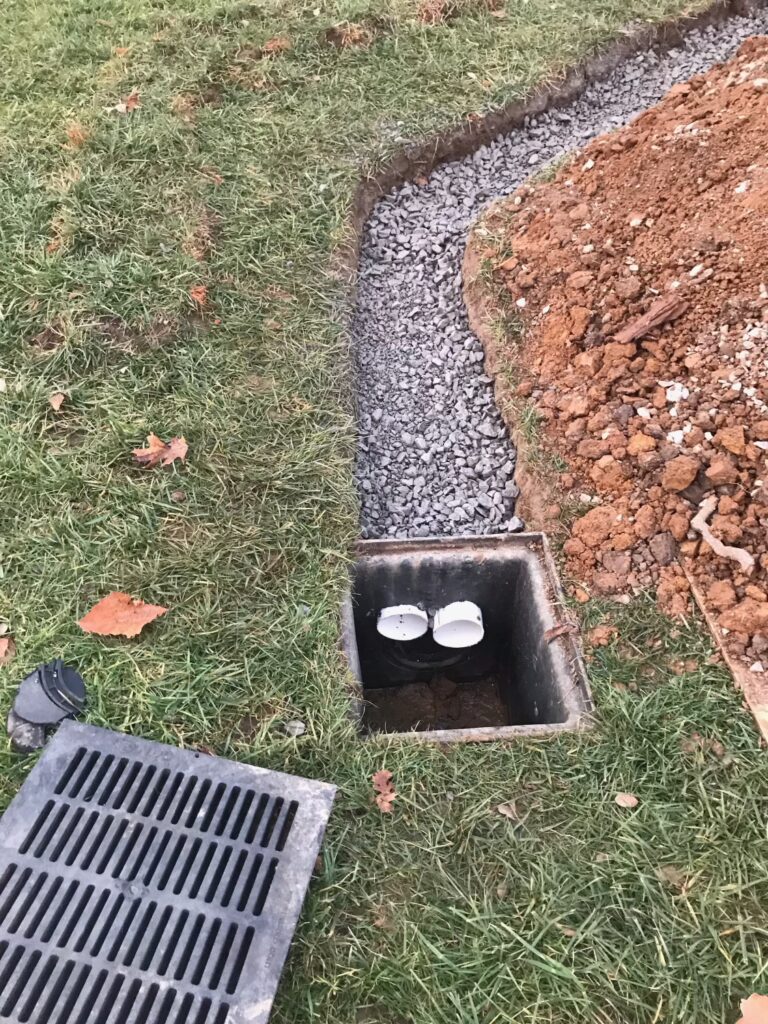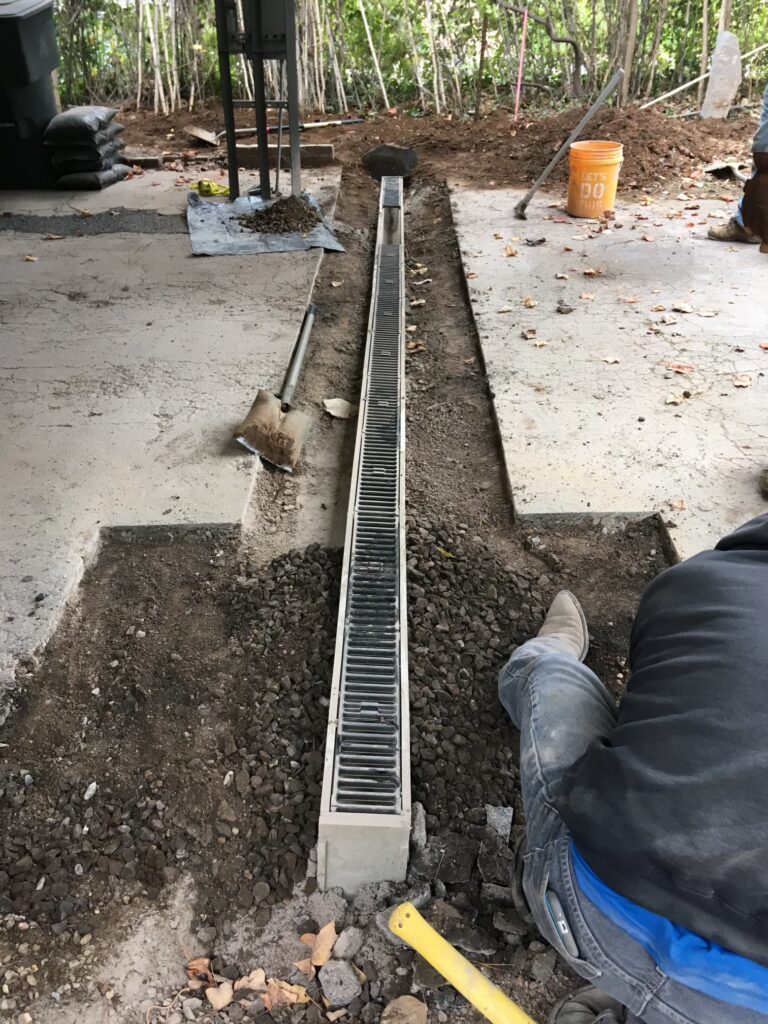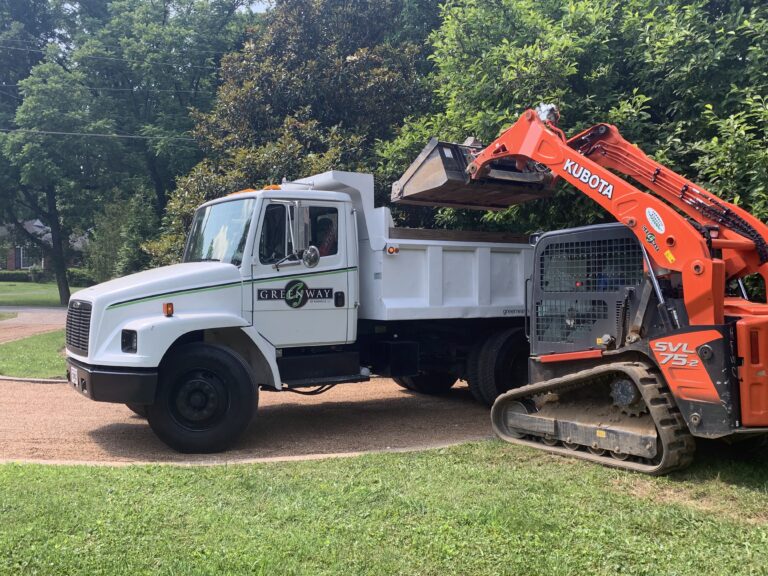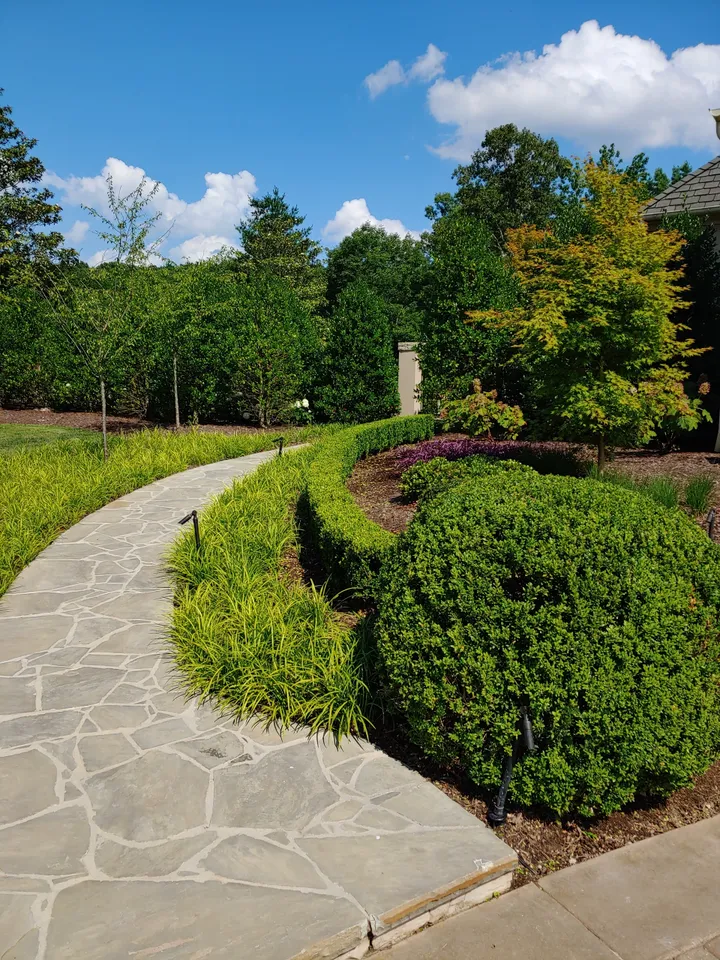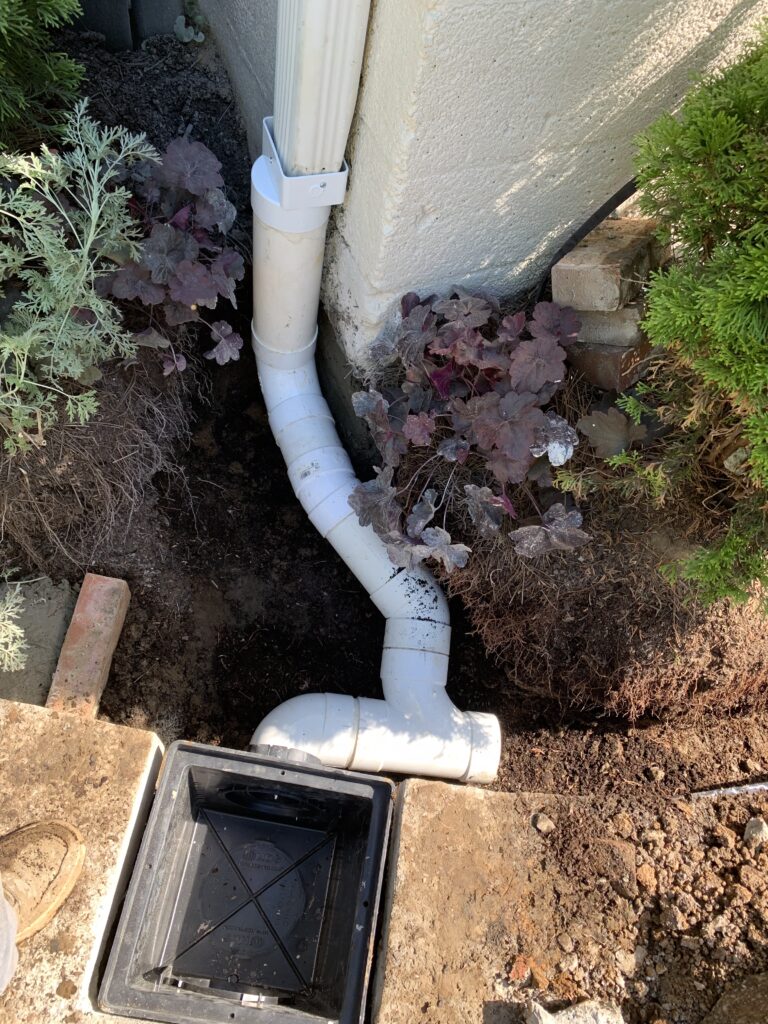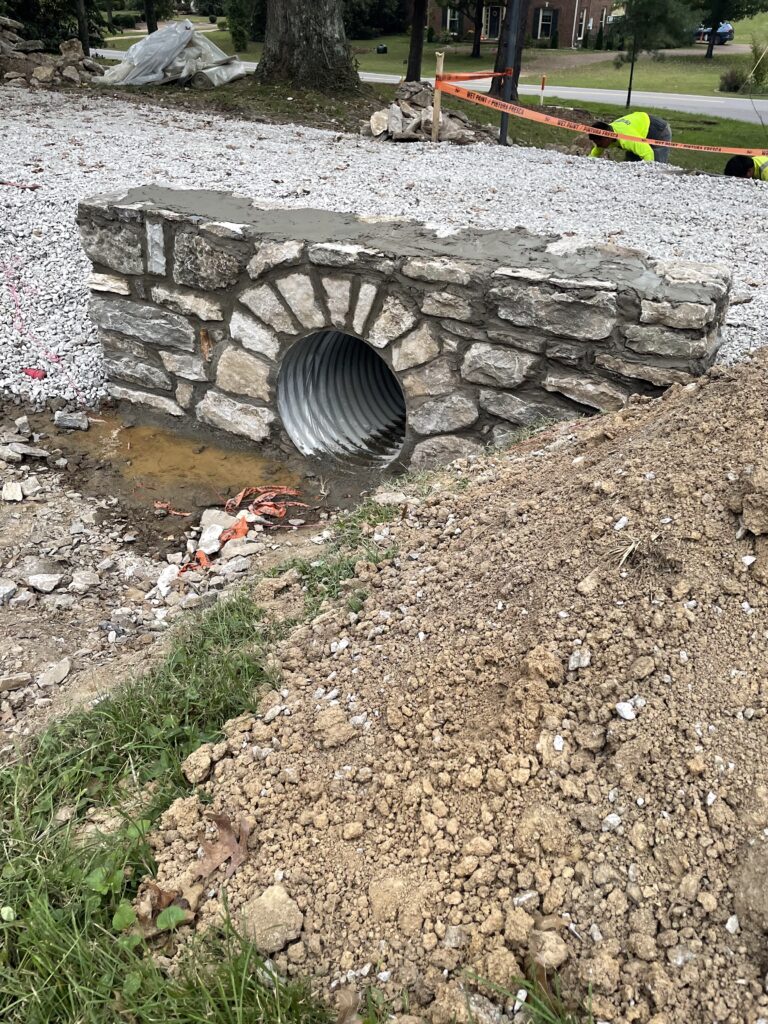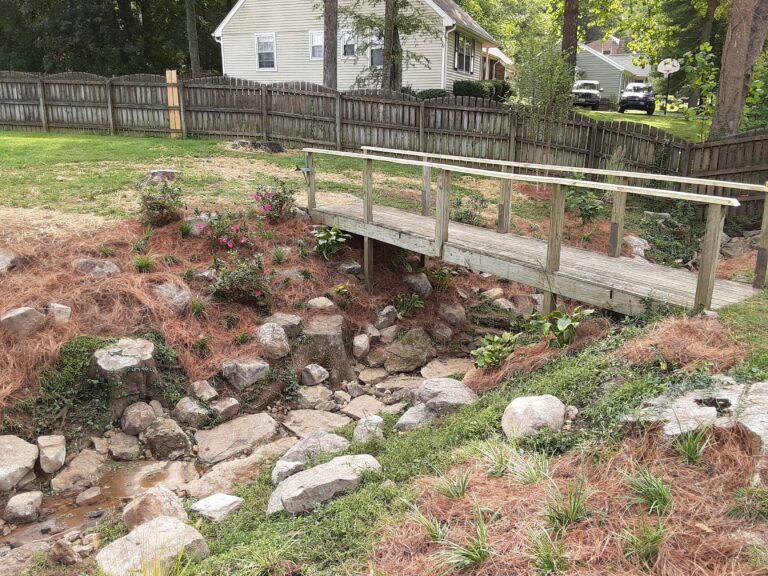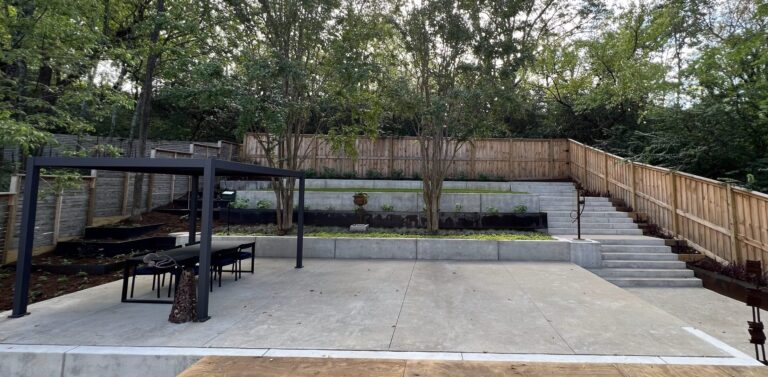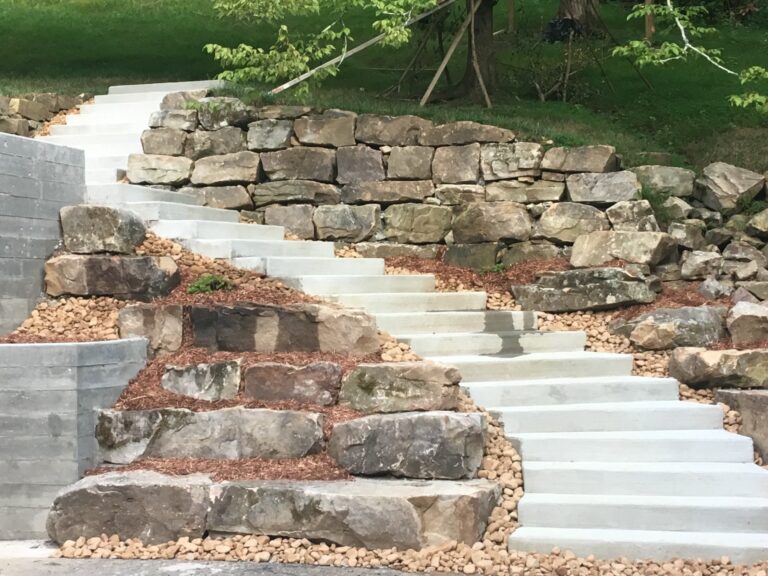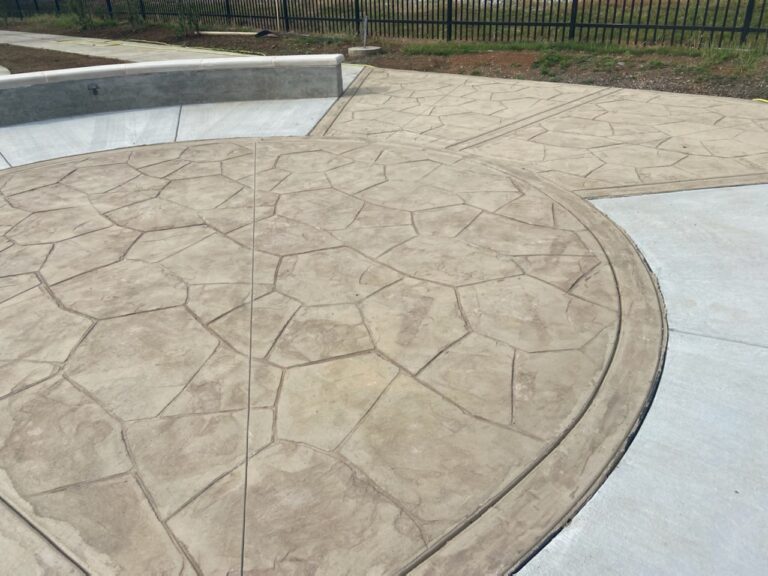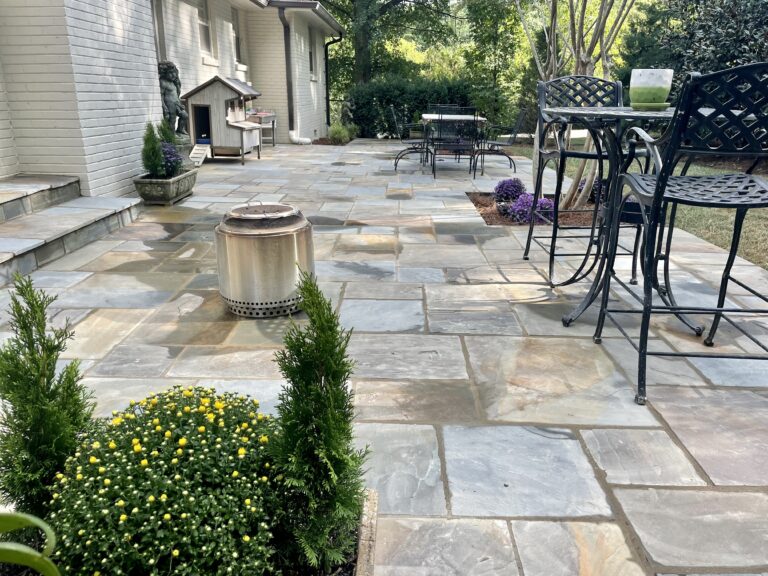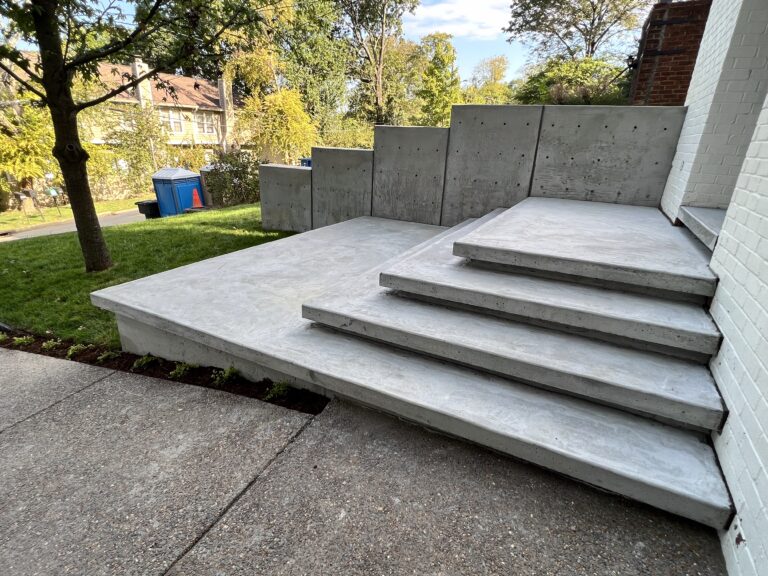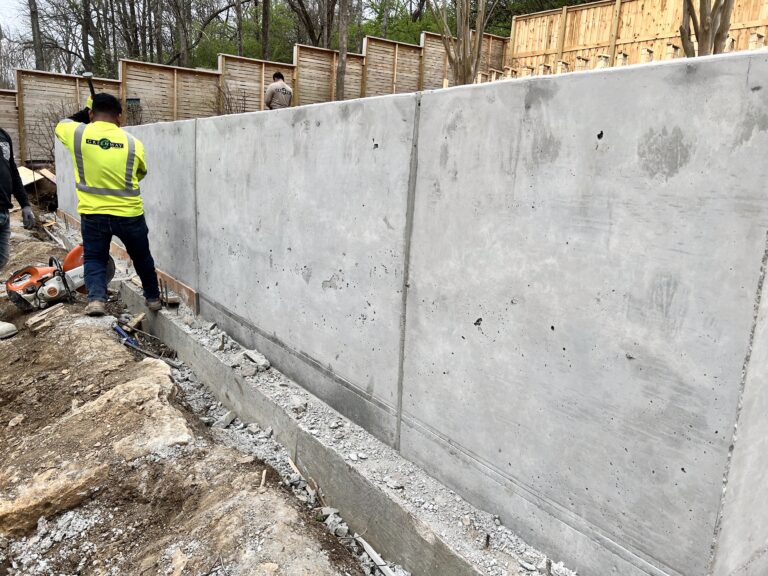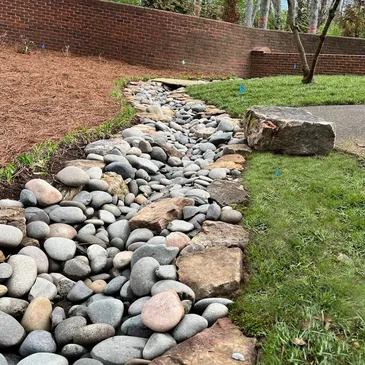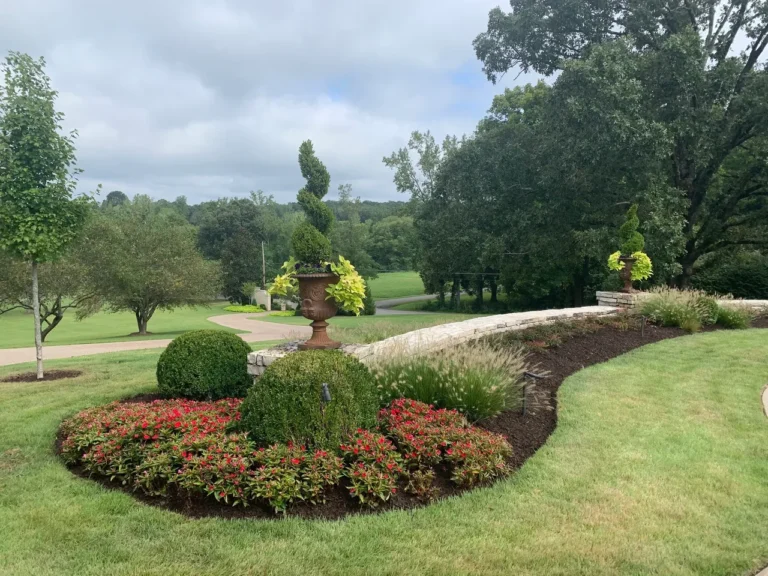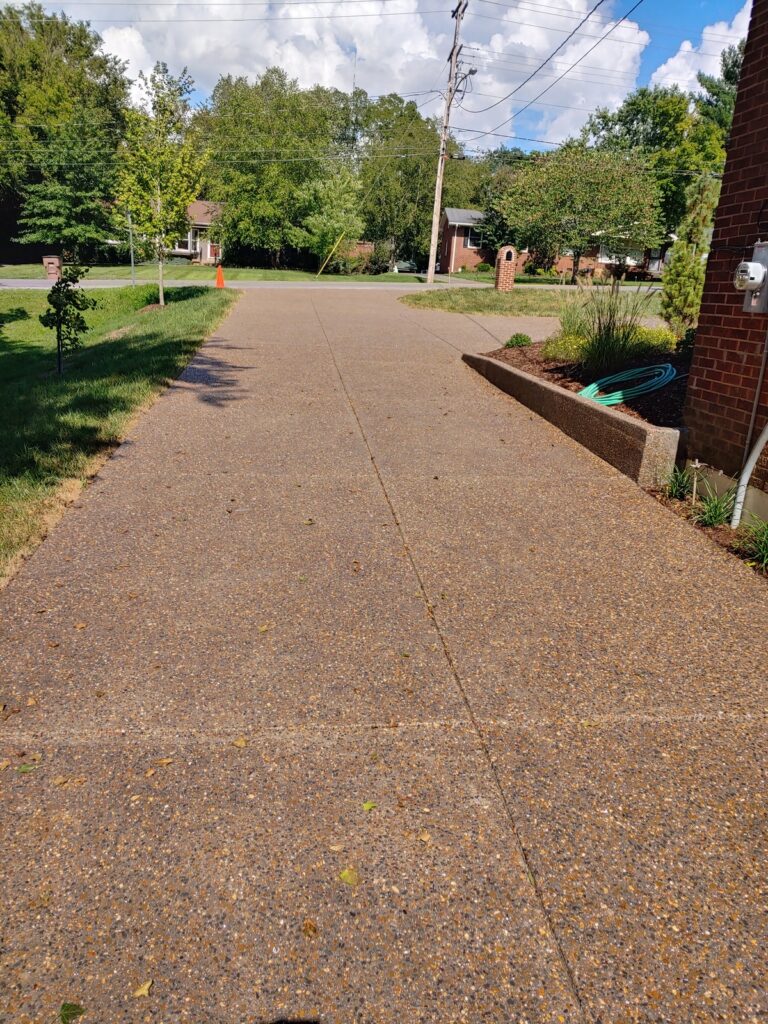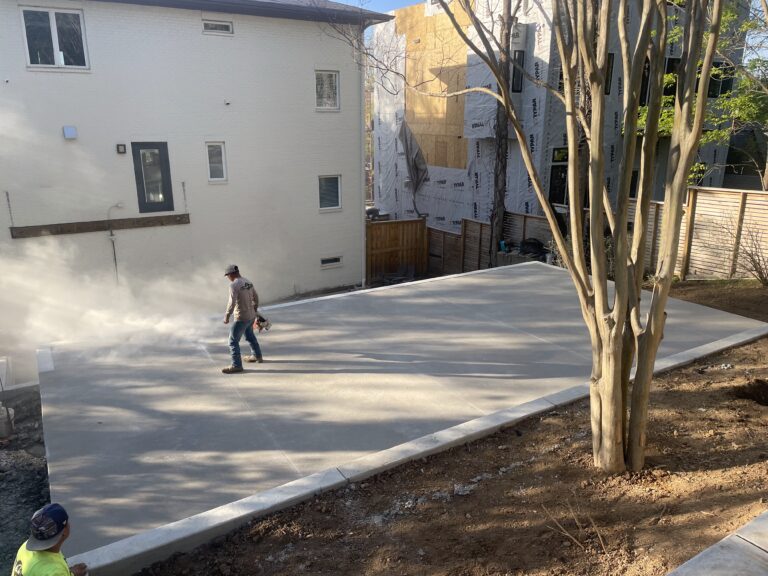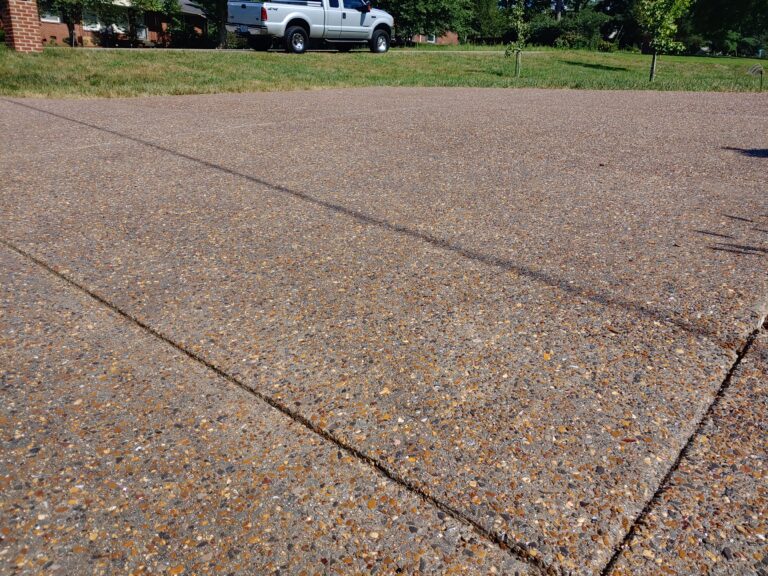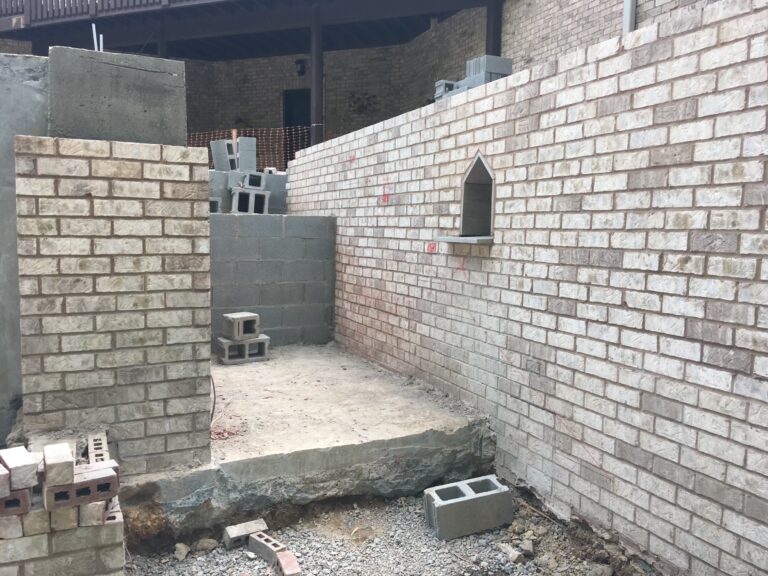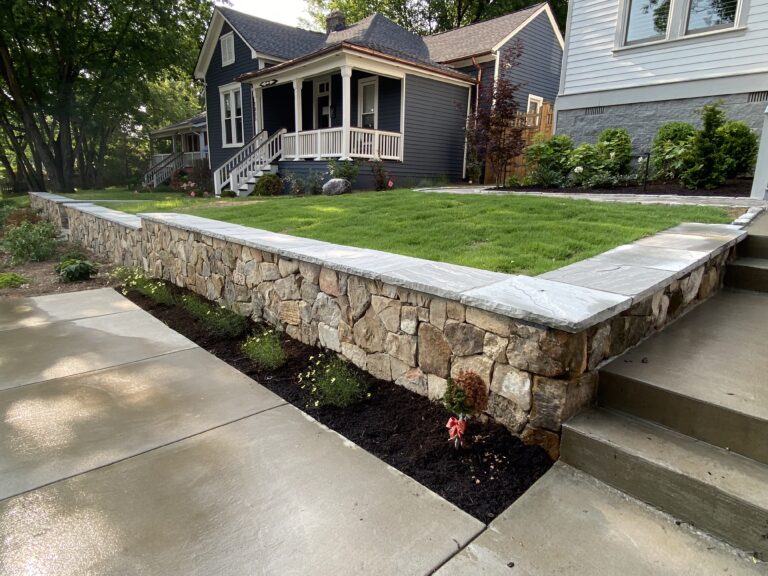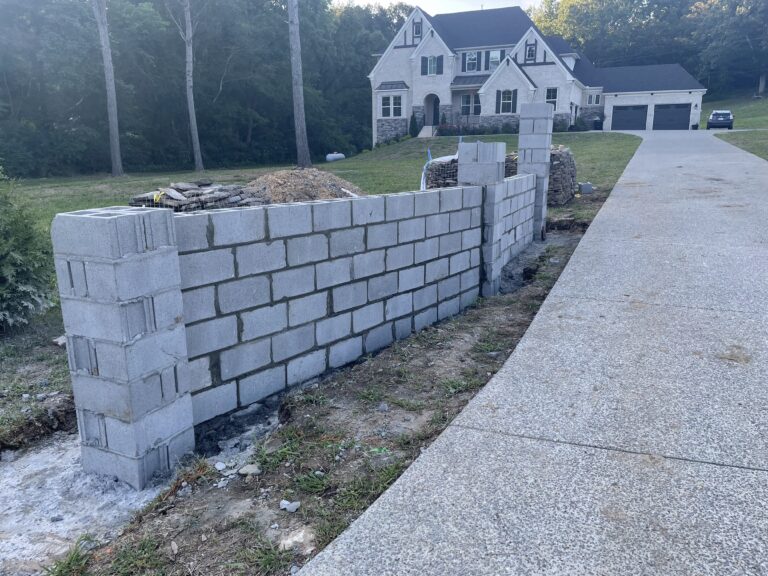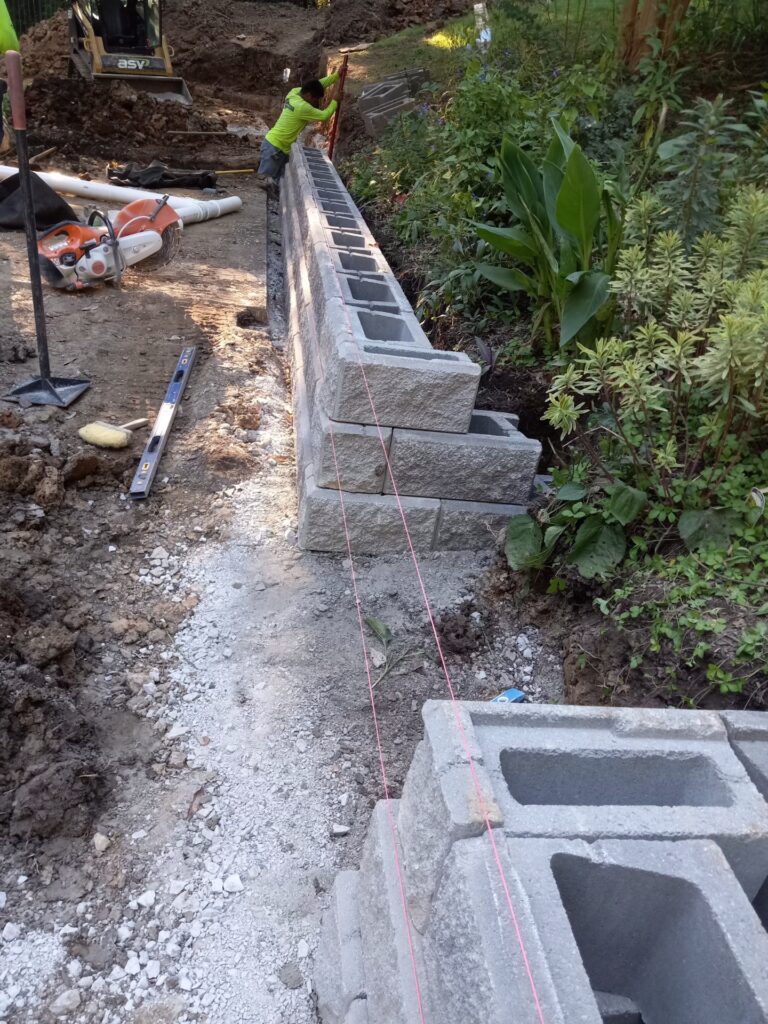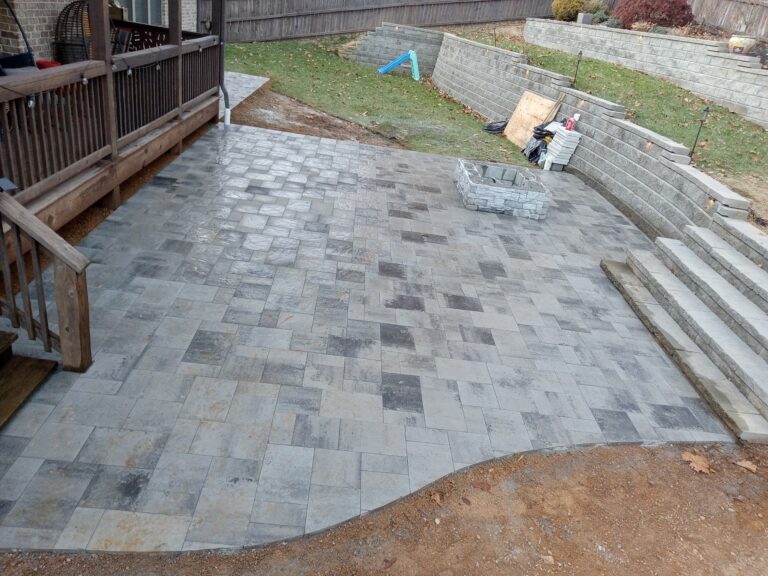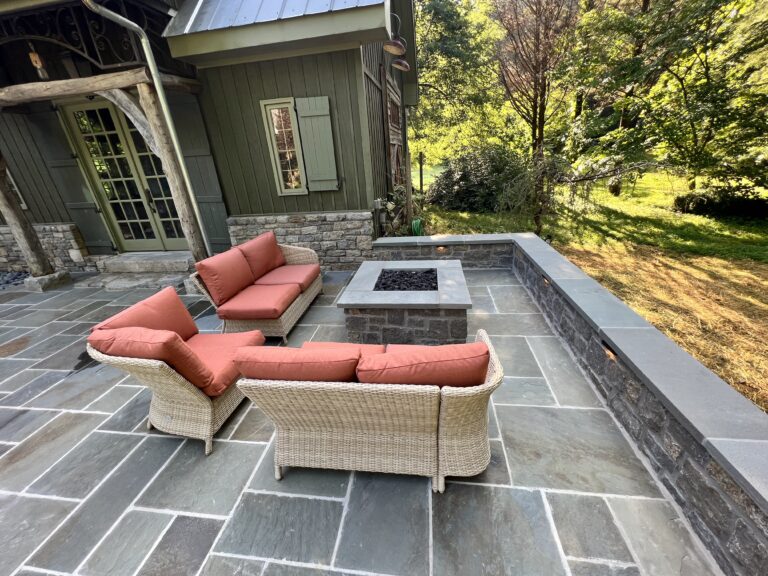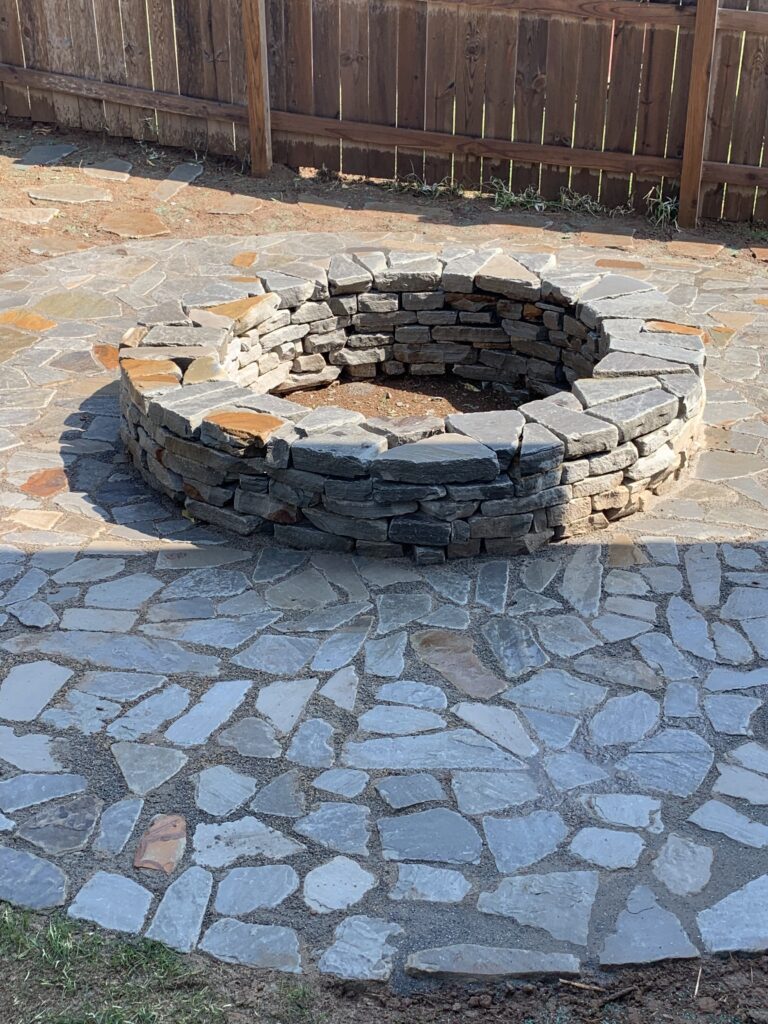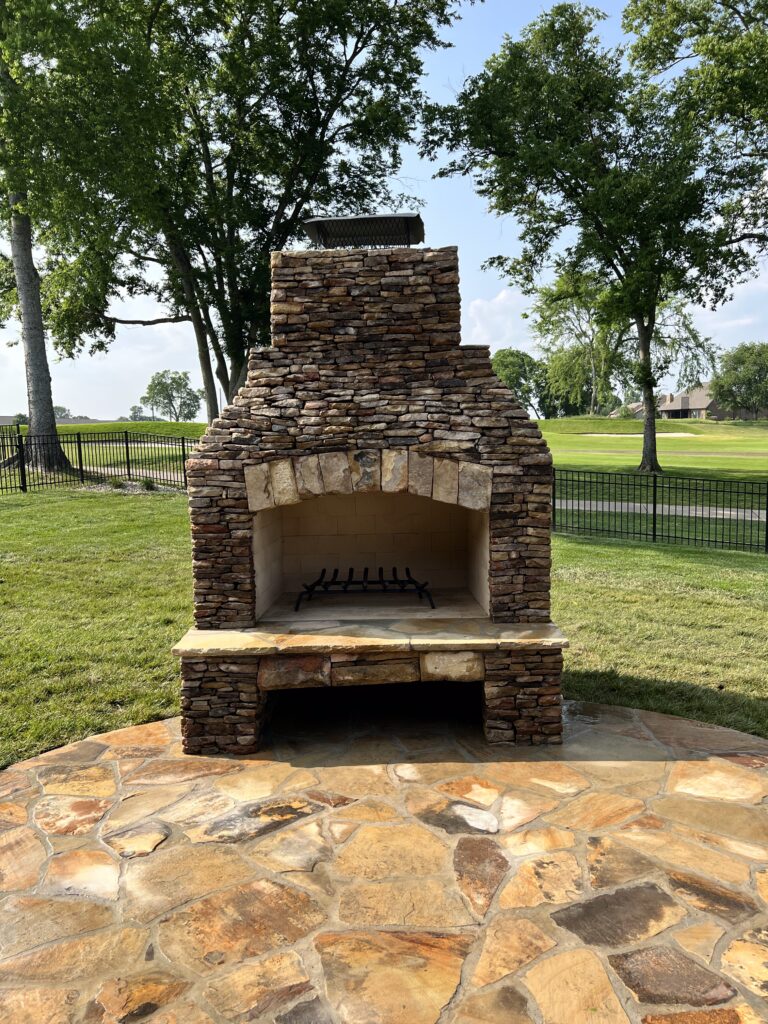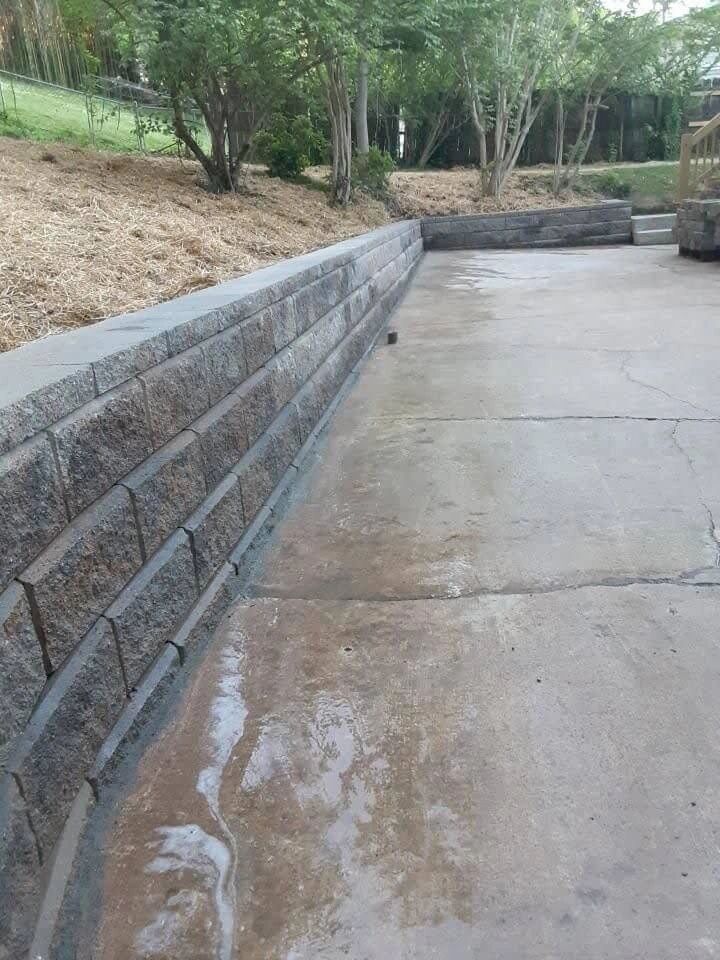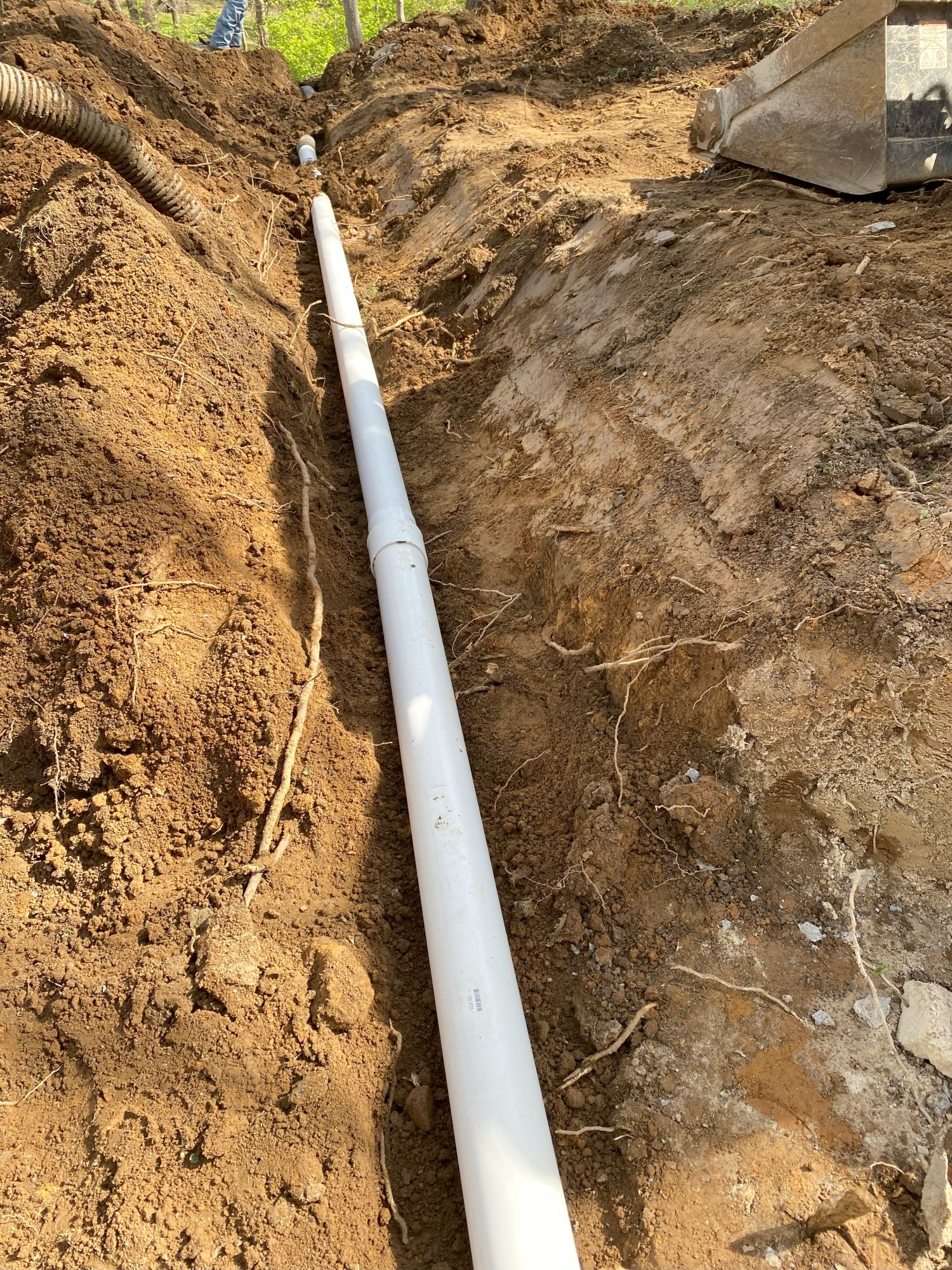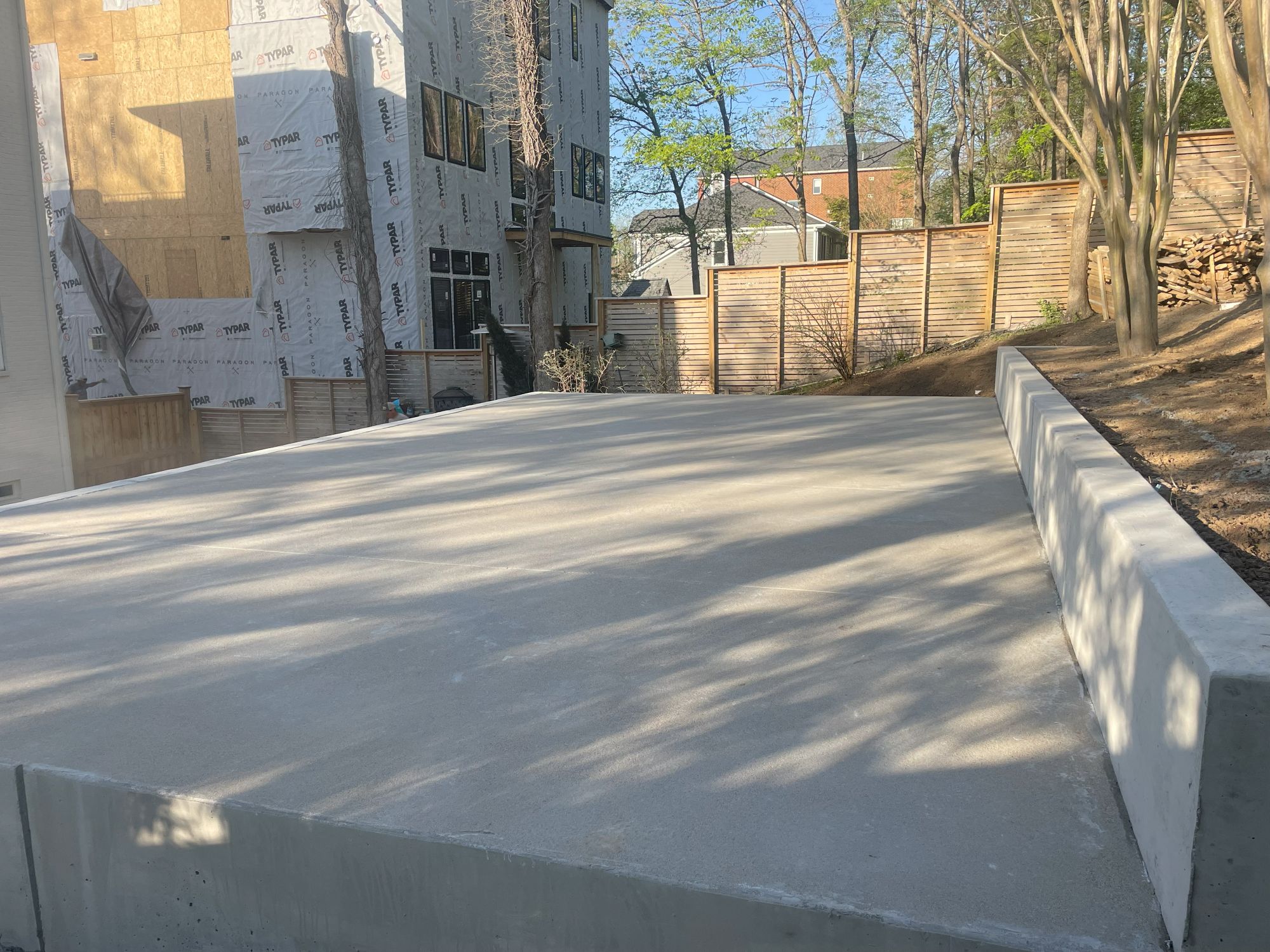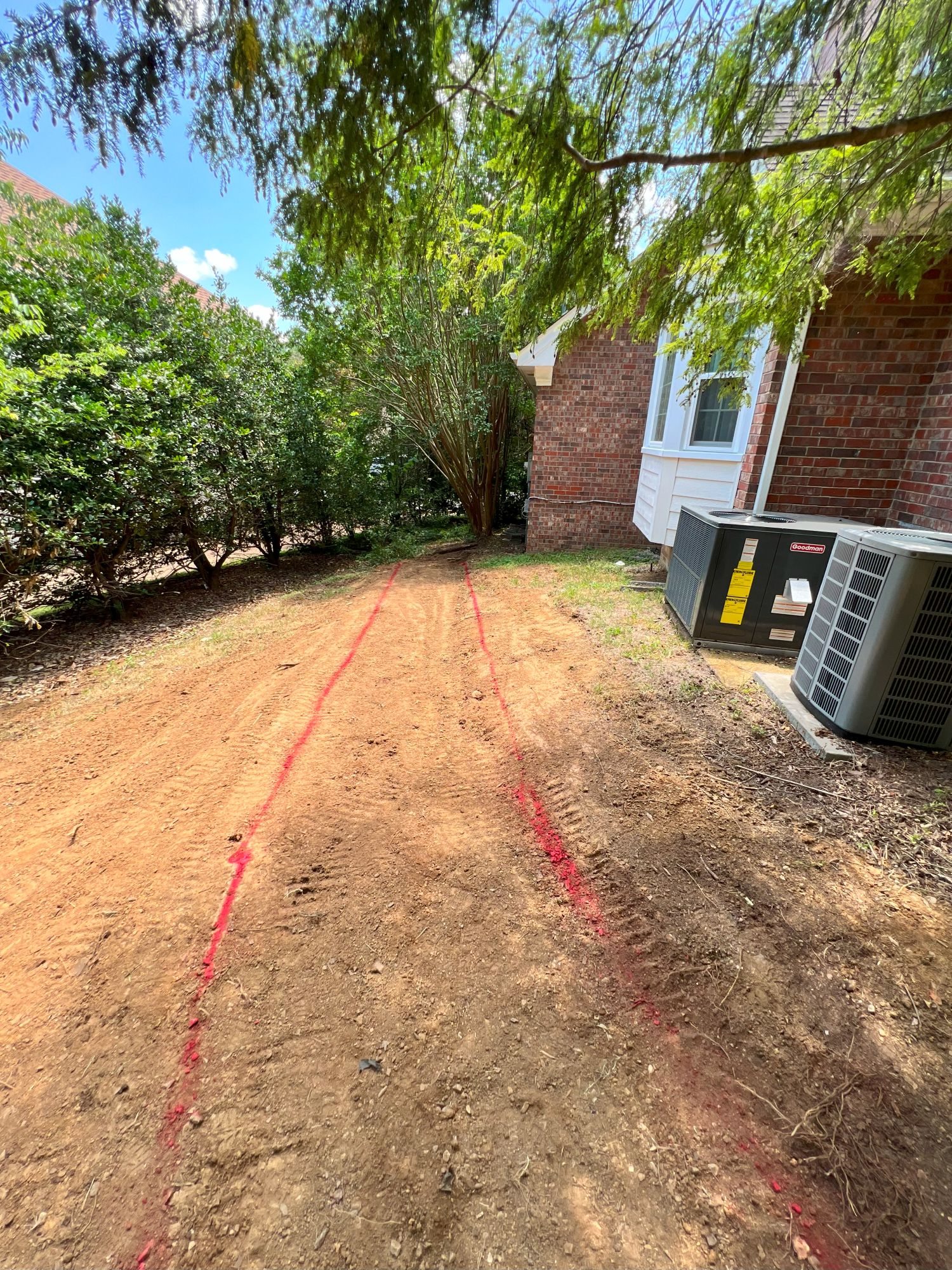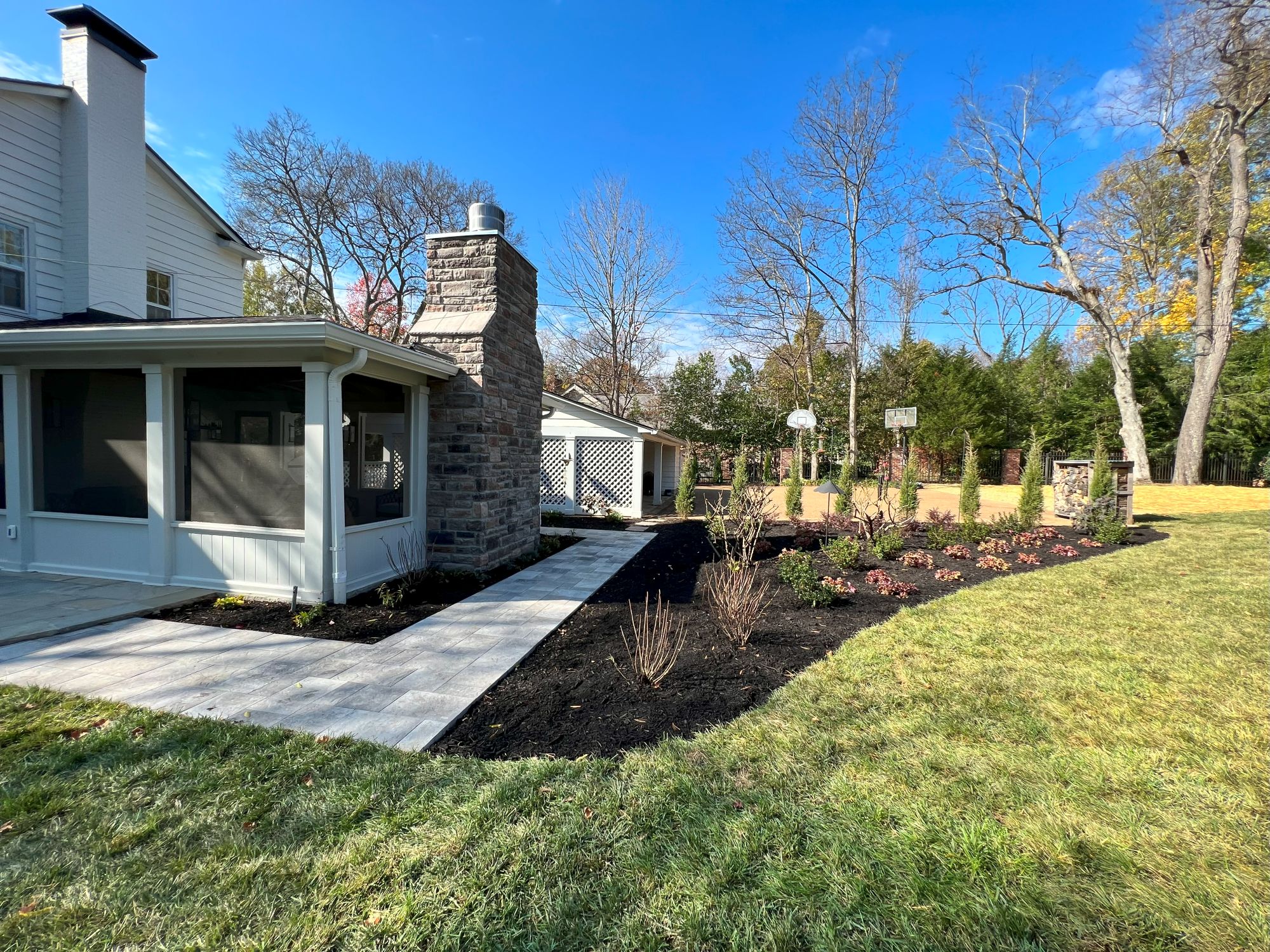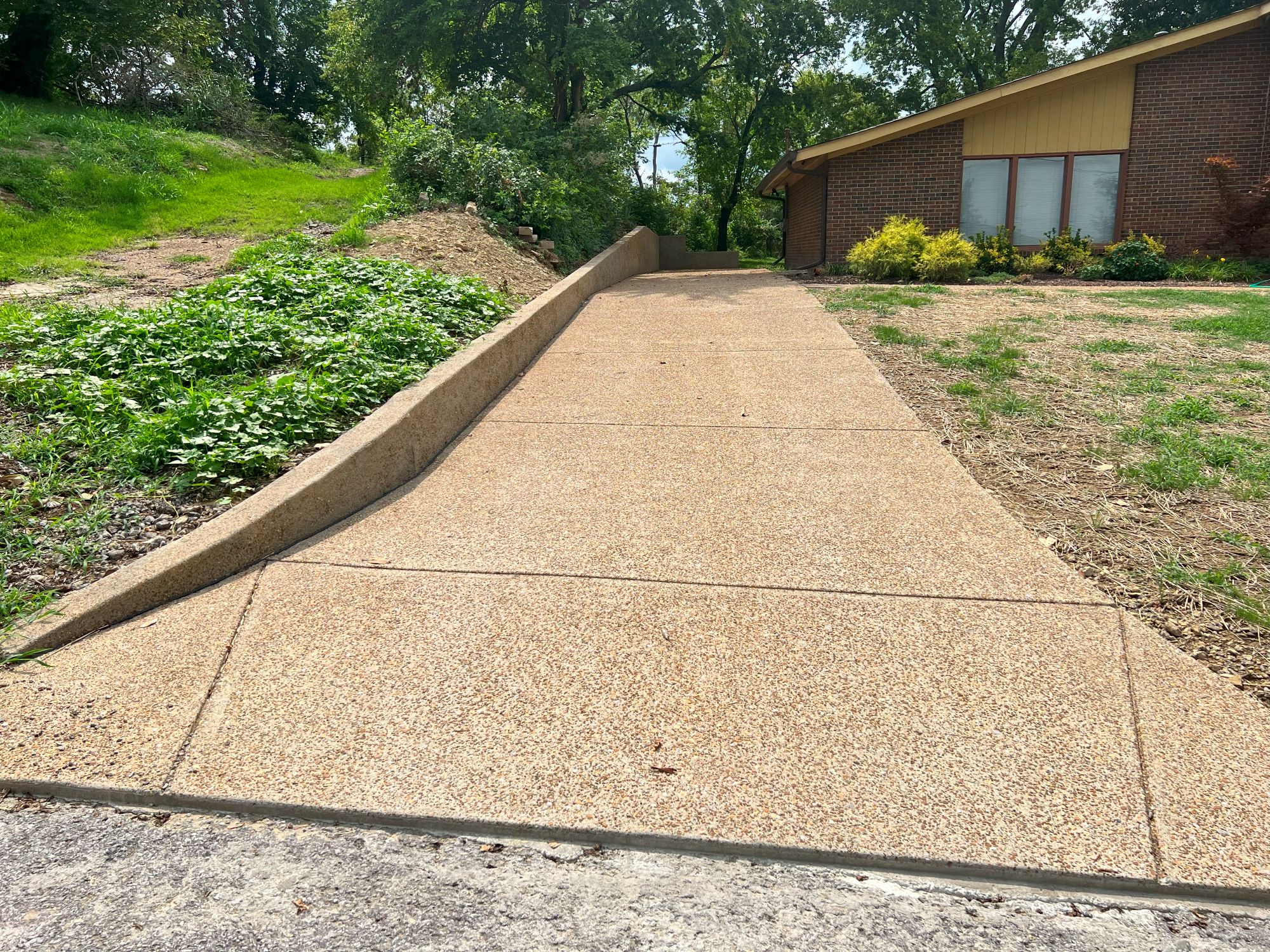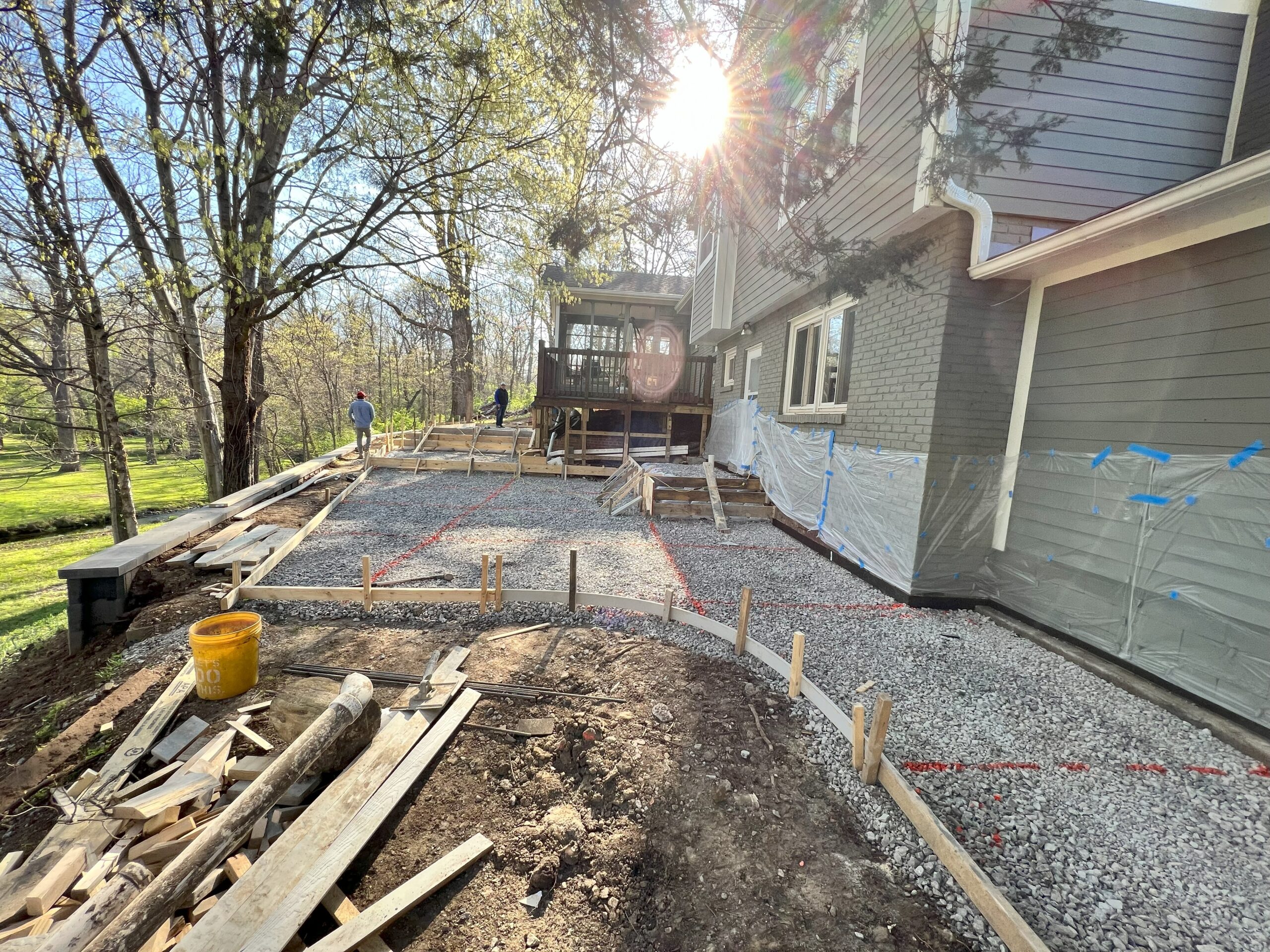Retaining walls are a key component in landscaping, particularly in hilly or uneven terrain, where they serve both practical and aesthetic purposes. And like all outdoor design elements, retaining walls come in a variety of styles and structures. Gravity retaining wall design is one of the most fundamental yet effective styles, relying on the wall’s sheer weight to hold back soil and using the force of gravity to maintain stability. Through their own strength and precision build, they’re capable of structural integrity without external reinforcement. Greenway is the Nashville expert in retaining walls—we’ll show you how gravity retaining walls work, discuss their pros and cons, and highlight why professional construction is important for the quality of your retaining wall.
How Gravity Retaining Walls Work
The basic principle behind a gravity retaining wall is simple: mass. These walls are typically constructed from heavy materials such as concrete, stone, or brick, and their weight resists the pressure placed on the wall by the soil pressing against it. The wall’s own weight, combined with the force of gravity, presses back against the pressure of soil that is constantly trying to push the wall forward or topple it over.
The thicker the wall and the denser the material, the more effective it will be at keeping the soil in place. Often, gravity retaining walls are built with a slight backward lean, known as a batter, to further stabilize them against pressure. This tilt helps distribute the weight more evenly and reduces the risk of the wall collapsing under the earth’s force.
What Is a Retaining Wall Made From?
As mentioned, there are a few common materials used in gravity retaining walls.
- Concrete Blocks: Premade concrete blocks are popular for their uniformity and strength. These are often interlocking, which adds structural integrity without needing mortar to stick them together.
- Natural Stone: Stone is a traditional material that offers a natural look and blends well with the environment. It does require more time and skill to construct, but stone walls are both strong and long-lasting.
- Brick or Masonry: Brick walls are attractive and durable but may require more regular maintenance, particularly in extreme weather conditions. They also require mortar, which adds time and complexity to retaining wall installation.
Reasons to Choose the Gravity Retaining Wall Design
One of the primary advantages of gravity retaining walls is their simplicity. Since these walls rely solely on their weight for stability, they don’t require complex engineering or reinforcement as long as the wall doesn’t need to be too big. It’s a great option for many homes! When properly constructed, gravity retaining walls can last for decades. Materials like stone and concrete are naturally resistant to weather and wear, making these walls low-maintenance and highly durable. Because they can be built with a variety of materials, gravity retaining walls complement the overall design of your property with ease. You’re able to choose materials that match your style, which means that the wall can either blend seamlessly into the environment or stand out as a decorative feature. Concrete retaining walls don’t have to be boring; they can be as expressive as the rest of your exterior.
Gravity retaining walls are relatively inexpensive, especially if using readily available materials such as stone or concrete blocks. Since the wall’s stability comes from its weight rather than extra reinforcement, labor and material costs are typically lower than other types of walls. This means you can achieve your hardscaping goals at a lower price point.
When Gravity Retaining Walls Aren’t the Best Option
The simplicity of a gravity retaining wall also means it has height limitations. The higher the wall, the more mass it requires to be stable. This can become impractical or expensive for tall walls. Taller walls require a more complex design, possibly involving reinforcement and anchoring or making a terraced wall. While gravity retaining walls are effective for certain applications, they may not be ideal for retaining large volumes of soil or for walls over a certain height without additional engineering support.
The sheer weight of the materials used in gravity walls can make transportation and installation more challenging. For large projects, the weight can also increase construction costs, especially when considering the need for heavy machinery to move and place the materials.
Professional Construction to Guarantee Retaining Wall Perfection
While the concept behind gravity retaining walls may seem simple, achieving a long-lasting and structurally sound design is nuanced and needs a skilled hand. It must begin with proper foundation and base preparation, or the retaining wall is set to fail from the start. Professional hardscapers like Greenway Constructors will ensure that the base is stable and compacted to prevent settling or shifting over time. Poorly prepared foundations are one of the leading causes of wall failure. Retaining wall repair is expensive, frustrating, and time-consuming, but having our pros take care of it avoids negative results.
We also handle the necessary calculations for the wall thickness based on the height and soil pressure. This prevents overbuilding or underbuilding, both of which can lead to costly mistakes. Greenway Constructors expertise ensures that the wall’s design matches the specific needs of your property. We also know from experience that using high-quality materials is essential for the longevity of a retaining wall. Greenway sources the best materials for your project, ensuring that your wall is not only aesthetically pleasing but also durable and resistant to the elements. Cutting costs on materials might be a short-term cost-cutting strategy, but it’s a big expense in the end.
One often overlooked aspect of retaining wall construction is drainage. Without proper drainage, water can accumulate behind the wall, increasing pressure and causing the wall to fail. This creates a mess on your property and leads to extensive work to fix any damage. We integrate effective drainage systems into every retaining wall project to prevent this issue. From the time we perform the consultation, we consider every factor needed to make your investment a long-term benefit. We understand the local terrain, soil conditions, and weather patterns, taking all of them into account when designing and building retaining walls in Nashville. With years of experience in the area, Greenway Constructors is familiar with the unique challenges of the region and knows how to design walls that can withstand the test of time.
Use Gravity to Your Advantage
Gravity retaining walls are a simple yet powerful solution for managing uneven terrain and preventing soil erosion. While their design may seem straightforward, ensuring their durability and functionality requires careful planning and retaining wall contractors who can build a wall that lasts. Whether you’re looking to create a small garden area or a larger retaining structure for your property, partnering with Greenway Constructors team of experienced contractors will make all the difference. With a focus on quality materials, proper construction techniques, and customized solutions, Greenway Constructors helps homeowners like you achieve beautiful, long-lasting retaining walls that stand the test of time. Sit back and relax while Greenway Constructors brings your retaining wall to life with the best materials, extensive knowledge, and the tools to do the job right.
